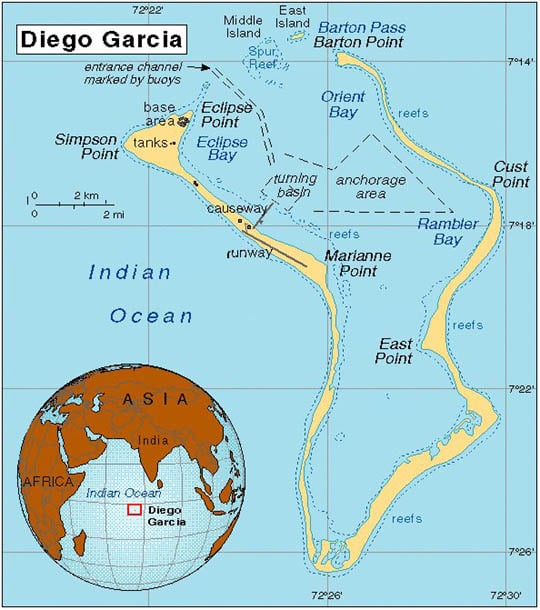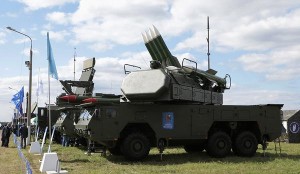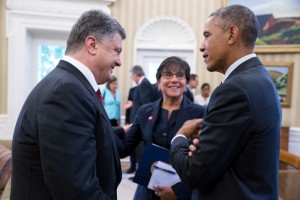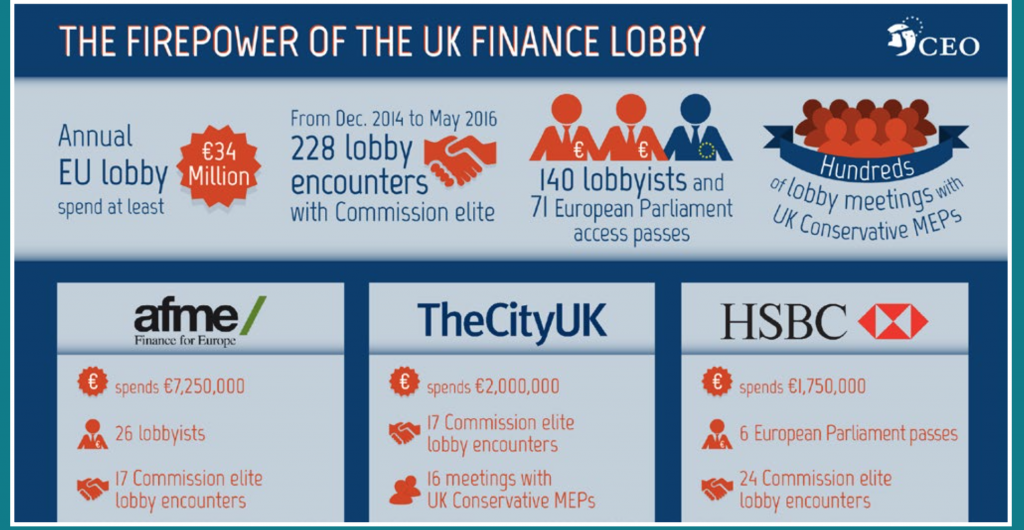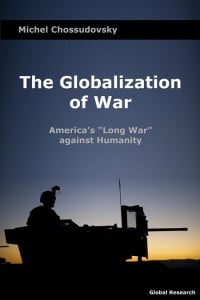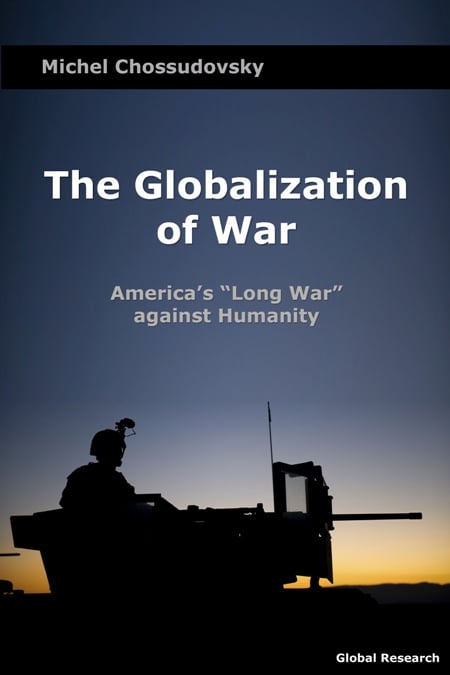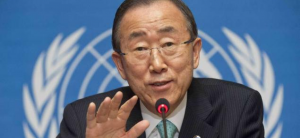An investigation by Finance Uncovered has exposed a little-known offshore business registry that has created tens of thousands of anonymous companies and registered them to a non-existent address in Monrovia, Liberia’s capital city.
Although these companies are technically a creation of Liberian law, management of the registry is based in the United States and appears to have the support of the US government.
The companies, which can be purchased online, offer near-total anonymity to their clients, allowing them to hide assets without fear of being caught by law enforcement or revenue authorities.
Among other things, Finance Uncovered’s investigation, supported by the Thomson Reuters Foundation and amaBhungane, discovered over half a billion pounds of high-value London property registered to Liberian offshore companies.
And there have been allegations that revenues from the registry were used to fund arms purchases during Liberia’s terrible civil war

Liberia’s secret companies
Non-resident corporations are a particular form of corporate entity offered by the Liberian government to foreigners. They cannot do business in Liberia, and anyone in the world can set up such a corporation online within 24 hours through a corporate service provider.
Registered with the ministry of foreign affairs, they have no liability to pay taxes in Liberia, and no obligation to declare who owns them or file annual accounts.
They can also issue “bearer shares”, a legal instrument banned in most countries because of the ease with which they can be used for tax evasion and money laundering.
Bearer shares are unregistered certificates of ownership which can be physically transferred, changing ownership of a company without any record being kept. They are companies in cash form.
This means that no one, including tax and law enforcement authorities and the directors of the company itself, can find out who the owners are.
It is unclear exactly how many offshore companies Liberia has established. The Liberian government does not publish official figures, and Liberian officials repeatedly stonewalled requests for information, citing “commercial confidentiality”.
The registry is apparently a sensitive issue for the foreign ministry. The ministry’s then-deputy minister for legal affairs, Boakai Kanneh, became visibly enraged when we raised the issue during a brief meeting and ordered us out of his office.
Binyah Kesselly, former commissioner of the Liberia Maritime Authority (LMA), which has oversight of the corporate registry, said in answer to e-mailed questions that the number of companies registered is kept confidential because of competition in the maritime industry.
The Liberian International Shipping and Corporate Registry (LISCR), a private company that manages the registry on the government’s behalf, also cited commercial confidentiality in response to questions.

Photo: One Hyde Park. A company called Vamespark Investments Corporation owns a 22.2 million pound apartment in London’s most exclusive address overlooking Hyde Park. (Photo by George Turner)
Outside LISCR, the LMA, the ministry of foreign affairs and the president’s office, few Liberians seem aware that the offshore companies registry exists.
The minister in charge of the Liberian domestic business registry until his death earlier this year, deputy minister of commerce and trade services Cyril Allen, told us in December 2015 he was unaware that Liberia had any other system of registering companies.
Some of the tax advisers who use the registry also seemed strangely unwilling to discuss it. Price Waterhouse Coopers is the only member of the “big four” accountancy firms with an office in Liberia, and is listed as a “certified service provider” on theLISCR’s website.
To qualify for this programme PwC must actively promote the use of Liberian companies. When we contacted them, the company said it would only respond to a letter delivered to its Monrovia office.
A letter was delivered, but no reply was forthcoming.
Liberia’s former auditor-general, John Morlu, slammed what he called secrecy surrounding the registry and the Maritime Programme of which it forms part.
He told us in an email:
“The Presidency has managed to conceal the corporate registry in the infamous maritime registry with 99% of the Cabinet, 99% of the legislature, and 99% of the Liberian people having no clue what a corporate registry is.
“Many Liberians know that the Maritime Programme is lucrative, and since it has always been the prerogative of the presidency no one dares bother to poke into it.”

Photo: Grosvenor Square. This entire building, located opposite the US Embassy in London is owned by a Liberian company, Forty Five Holdings Limited. (Photo by George Turner)
However, Finance Uncovered located an OECD report from 2013 on Liberia’s tax and transparency laws which states that 55,000 companies are registered in that country. Most are understood to be non-resident corporations.
In 2009 the trial of former Liberian president and convicted war criminal Charles Taylor heard that the offshore corporate registry had registered 40,000 companies.
Asked for comment, the Liberian government claimed that the maritime programme and the registry are not secret and that President Ellen Johnson Sirleaf usually reports on the activities of the registry in her annual State of the Union address.
No mention of the registry could be found in the previous two State of the Union addresses. We asked when Sirleaf last updated the Liberian legislature on the programme. Her spokesperson,Jerolinmek Matthew Piah did not respond.
In search of 80 Broad Street
To receive mail, all Liberian non-resident corporations must have an address in Liberia and a registered agent.
Under Liberian law the LISCR Trust Company, a private entity with the address of 80 Broad Street, is the exclusive agent for all Liberian non-resident corporations. This means that all such corporations have the same mailing address – 80 Broad Street, Monrovia.
Broad Street is the commercial heart of downtown Monrovia. But 80 Broad Street does not exist, and when we visited the area none of the businesses in the street had heard of it.
At the ministry of post and telecommunications, no one would say who was assigned to that address.
Finally, a DHL agent we interviewed found that mail for 80 Broad Street is diverted to LISCR, on 5th Street in Sinkor, a few kilometres away.
At the LISCR offices, we were told that the managing director, Joseph Keller, was on long-term sick leave in the US and no one had replaced him.

Photo: The Liberian Business Registry, off Broad Street Monrovia, where Liberian resident corporations are are registered. (Photo by George Turner)
Asked whether anyone at LISCR’s Monrovia office could explain what happened there, we were told “no”.
LISCR’s Monrovia office appears to be little more than a mailroom, receiving correspondence for the thousands of companies registered there, which is scanned into computers and e-mailed to LISCR’s US headquarters.
The US connection
Liberia’s offshore registry would not have been possible without US patronage . A LISCR spokesperson said the foundation of the registry “resulted from an initiative of the United States government at the end of World War 2 to set up, in effect, an offshore ship register for the United States.”
Liberia was chosen because of the “strong historical connections between the US and Liberia”.
The Liberian shipping registry was founded in 1948 by former US secretary of state Edward Stettinius, who persuaded the Liberian government to contract out its shipping register to a private US company.
Today LISCR, the register’s current manager, is based in Vienna, Virginia, at the heart of the US military-industrial complex close to Washington DC. It has offices across the world.
The fees collected by LISCR are transferred to the Liberian government through a special account at the US Federal Reserve.
Liberian law continues to require that LISCR is owned and managed by US nationals. Its owner is Yoram Cohen, whose investment firm YCF Group owns agriculture, shipping and telecommunication companies operating in 18 countries, according to its website.
Cohen was also the president of Cellcom, a Liberian cell phone company, before it was sold to Orange earlier this year.
LISCR itself is registered in the tax haven and secrecy jurisdiction of Delaware in the US – prompting criticism in 2003 from the United Nations, which said it would have preferred the company to publicly declare its shareholders.
LISCR said the UN has never accused it of wrongdoing and that it has always co-operated with Security Council investigations into Liberia.
Throughout the history of the registry, LISCR and its predecessor have been staffed by retired US generals and former employees of the US coast guard.
In return for hosting this outpost of financial secrecy, the Liberian government gets to keep 67% of the net revenues collected by LISCR on its behalf. Funds raised by the company accounted for 75% of the government’s annual revenues during Charles Taylor’s rule, according to Taylor’s head of maritime affairs, Benoni Urey. During the first Liberian Civil War, revenues from the registry accounted for 90% of government revenue, as described in UN Security Council Report on Liberia.
The receipts are far less significant now, but there are still concerns about where they end up. Under the Taylor administration the Bureau of Maritime Affairs (BMA), a Liberian government agency that oversees the work of LISCR, took 10% of the revenue from the maritime programme for its running costs.
This was off the government’s balance sheet, and the UN alleged that Urey used the agency to make off-budget arms purchases during the civil war in violation of UN sanctions.
In a recent interview, Urey claimed that the money granted to the BMA was used for legitimate running costs. He said his agency was audited four times and on each occasion he was cleared of wrongdoing.
According to news reports, an agreement signed earlier this year between LISCR and the Liberian government grants the Liberian Maritime Authority, which has taken over from the BMA, 25% of revenues to meet its running costs. There appears to be little scrutiny of where the money goes, although there is no evidence that it is used for inappropriate expenditure.
The government refused to respond to questions about the revenues generated by the corporate registry.
‘Knuckles-gate’
In 2009, LISCR’s contract with the government came up for renewal, and the negotiations led to a political storm known as “Knuckles-gate”.
Willis Knuckles was President Sirleaf’s former chief of staff. In 2009, he was chairperson of Cellcom, LISCR’s sister company, when emails emerged purporting to show that Knuckles tried to bribe members of the government, including Sirleaf herself, during the negotiations to extend LISCR’s contract.
An independent commission was set up to investigate the allegations led by Dr Elwood Dunn, a respected academic. The Dunn Commission, whose report can still be found on the Liberian president’s website, states that their findings were in part based on interviews with Yoram Cohen and other staff at LISCR and Cellcom.
The commission’s report cleared Sirleaf of corruption but criticised Knuckles for offering a $200 top-up card to the president’s brother-in-Law.
The commission found evidence of some “unclear payments” by LISCR that should be probed further, including a $600,000 “pre-payment” referred to in an email on a hard drive in Sirleaf’s mansion.
In its response to Finance Uncovered, LISCR issued a stinging attack on the Dunn Commission, claiming that the commission never contacted the company in the course of its inquiries. LISCR added that the alleged payments from it referenced on the hard drive in the president’s mansion never took place and that the company was subsequently cleared of any wrongdoing in a letter from the Liberian justice ministry.
Liberia blacklisted
The offshore registry has prompted a growing number of countries to place Liberia on tax haven blacklists, with potentially far-reaching consequences for investment.
In June 2015 the European Union released a consolidated list of tax havens drawn from its member states – and Liberia was included by Bulgaria, Greece, Croatia, Latvia, Lithuania, Poland, Portugal, Slovenia and Spain.
Now, the EU is threatening to create a new list compiled by the European Commission, and may impose sanctions on states that do not meet international tax and transparency standards.
Brazil lists Liberia as a “privileged tax regime”. Argentina has produced a white list of countries that are not tax havens, and Liberia is one of the few that is not included.
Several US states, including Montana and Oregon, have drawn up tax haven lists, and companies in these states doing business in listed countries have greater tax obligations. Again, Liberia features.
Asked to comment, Sirleaf’s office and LISCR emphasised that the registry complies with international norms and standards on tax and transparency. Said the president’s office: “Liberia does not conform to the definition of tax haven and in fact is not considered such by leading OECD countries such as France and the USA.” It added, “Over the past years, the government of Liberia has … taken measures to improve upon the transparency and management of the programme to meet all of the OECD requirements. Liberia is in fact an OECD ‘white-listed’ jurisdiction.”
On its website and in its statement to Finance Uncovered, LISCR echoed the claim that Liberia is an OECD “white-listed jurisdiction”.
However, the OECD ceased to publish a white list in 2009. Responsibility for international coordination of policy in this area has passed to the OECD Global Forum on Transparency and Exchange of Information for Tax Purposes. A spokesperson confirmed that the forum does not publish white lists.
The forum, which has 131 members, including Liberia, conducts phased reviews of whether governments meet agreed standards on tax and transparency.
Last reviewed in 2012, Liberia has yet to pass phase one. And this is because of lack of access to ownership and accounting information from Liberian non-resident corporations.
In response, the government said: “There is no bad stigma attached to this designation, as many other countries have been in the same position. The reason for this is very simple. Liberia has not been able to compete with the larger countries, such as in Europe, as it does not have the infrastructure and manpower in place to assist with the implementation of the rigorous standards required by the OECD.”
Only eight states – Liberia, Vanuatu, Trinidad and Tobago, Nauru, Lebanon, Micronesia, Guatemala and Kazakhstan – have failed to make it past phase one of the OECD Global Forum. Even tiny well-known tax havens such as the British Virgin Islands, the Cayman Islands, Mauritius and Panama have moved to phase two.
This month, Liberia passed new legislation on corporations, after the country was given a deadline by the OECD, which is conducting its latest review. This reiterates companies’ obligation to keep internal accounting and ownership records but does not oblige them to file those records with the corporate registry.
LISCR emphasised that the provisions are similar to those of many other countries.
For the first time the law gives the Liberian authorities power to request documents from the companies themselves.
A failure to comply results in a minimum fine of $1.000, while the fine for not keeping records is capped at $5,000.
Liberian companies also continue to be allowed to issue bearer shares, which can make attempts to discover the ownership of companies extremely difficult.
‘Unimaginable damage’
After the European Union published its tax haven blacklist, officials at LISCR’s US headquarters started to email campaign groups in Europe to ask for help in lobbying to get Liberia removed from the list.
In one e-mail seen by Finance Uncovered, a senior LISCR official writes: “The harm this blacklisting will do to reputation and commercial enterprise is unimaginable.”
It is a fear echoed by banking representatives in Liberia. In theLiberian Observer, local banks said it was difficult for them to establish correspondent banking relations because of Liberia’s reputation as a money-laundering centre.
Asked about the effect on a country such as Liberia of being added to a blacklist, Melissa Dejong, a tax policy analyst for the OECD, said they are aware of financial institutions moving out of countries that do not comply with the Global Forum recommendations, and that blacklisting deters investment.
“In some cases, jurisdictions may impose rules with respect to jurisdictions that do not meet the Global Forum standards,” Dejong said.
“For example, a jurisdiction may impose tax consequences on their own taxpayers who engage in transactions with a person in a jurisdiction that does not meet the Global Forum standards, such as higher withholding taxes, increased likelihood of audit, denial of tax benefits, increased information reporting requirements. These create a disincentive to investment.”
A national resource
Kesselly, the former chief executive of the Liberian Maritime Authority, said the characterisation of Liberia as a tax haven is a “misconception”.
Kesselly said Liberia is not listed as a “high-risk” jurisdiction by the Financial Action Task Force, and that diplomatic correspondence with the EU suggests the country will be taken off the European list of tax havens later this year.
Calling the registry “a national resource”, he said that every non-resident Liberian corporation must have an agent and an address in Liberia where official documents and mail can be served, regardless of whether anything else happens there.
In addition, non-resident corporations pay fees to the Liberian government on incorporation and every year thereafter, as well as when they file documents.
“The government views these programmes as national resources and is committed to protecting these resources by modernising them to both meet the needs of clients, and maintain compliant ratings from our international peers,” Kesselly said. “This synergy ultimately benefits the people of Liberia.”
However, Morlu, Liberia’s former auditor-general, said the small income the registry generates for the government – between $9-million and $15-million in most years – does not justify the tremendous risk.
“There are better ways to make money and since Liberia does not have the means, the desire and the political will to create a stronger regulatory and enforcement regime, we are better off not adding to the world’s problem of terrorist financing, drug financing and illicit flow of funds from other poor countries,” Morlu said in an email.
He would like to see the registry reserved only for legitimate shipping companies.
With the OECD report due on its progress in meeting transparency standards, and the EU threatening sanctions against countries on its blacklist, this summer will be a key moment for Liberia.
Scrutiny by international institutions is bound to grow in the wake of the Panama Papers. If Liberia is once again found to be lacking, the consequences for this fragile economy, still recovering from ebola, could be devastating. DM
*Liberian journalist’s identity is concealed to protect his publication from reprisals.
This story was produced by a Liberian journalist and Finance Uncovered, a global network of investigative journalists. It was written as part of Wealth of Nations, a pan-African media skills development programme run by the Thomson Reuters Foundation.
Main photo: LISCR’s office on 5th Street Sinkor District Monrovia, where mail for the more than 40,000 companies registered to 80 Broad Street is delivered. (Photo by George Turner)
This story was provided by:

We are an independent, non-profit investigative journalism centre. Like this story? Be an amaB supporter. Sign up for our newsletter. Visit us at amaBhungane.co.za.


 And last month, Pew reported:
And last month, Pew reported:






